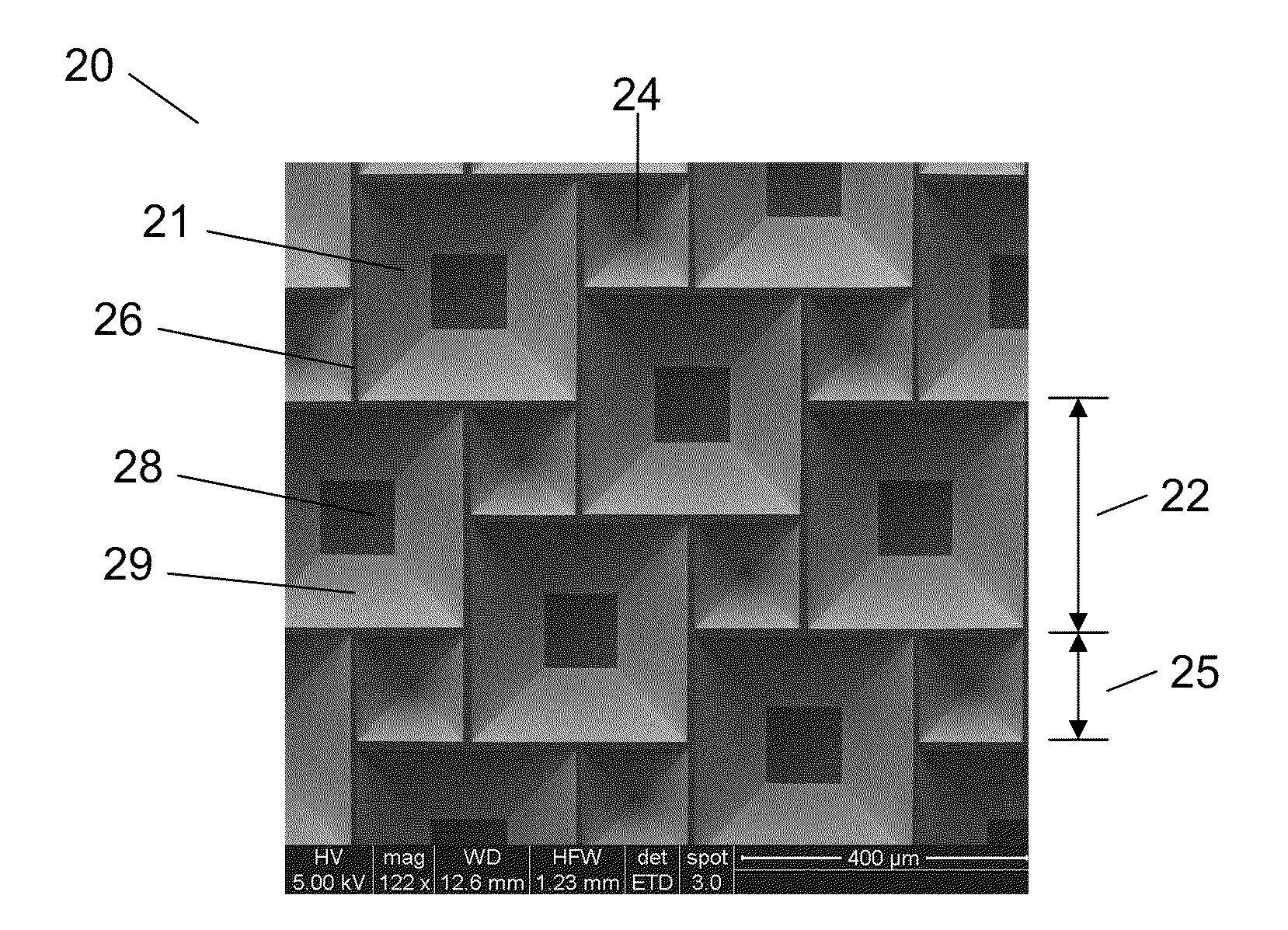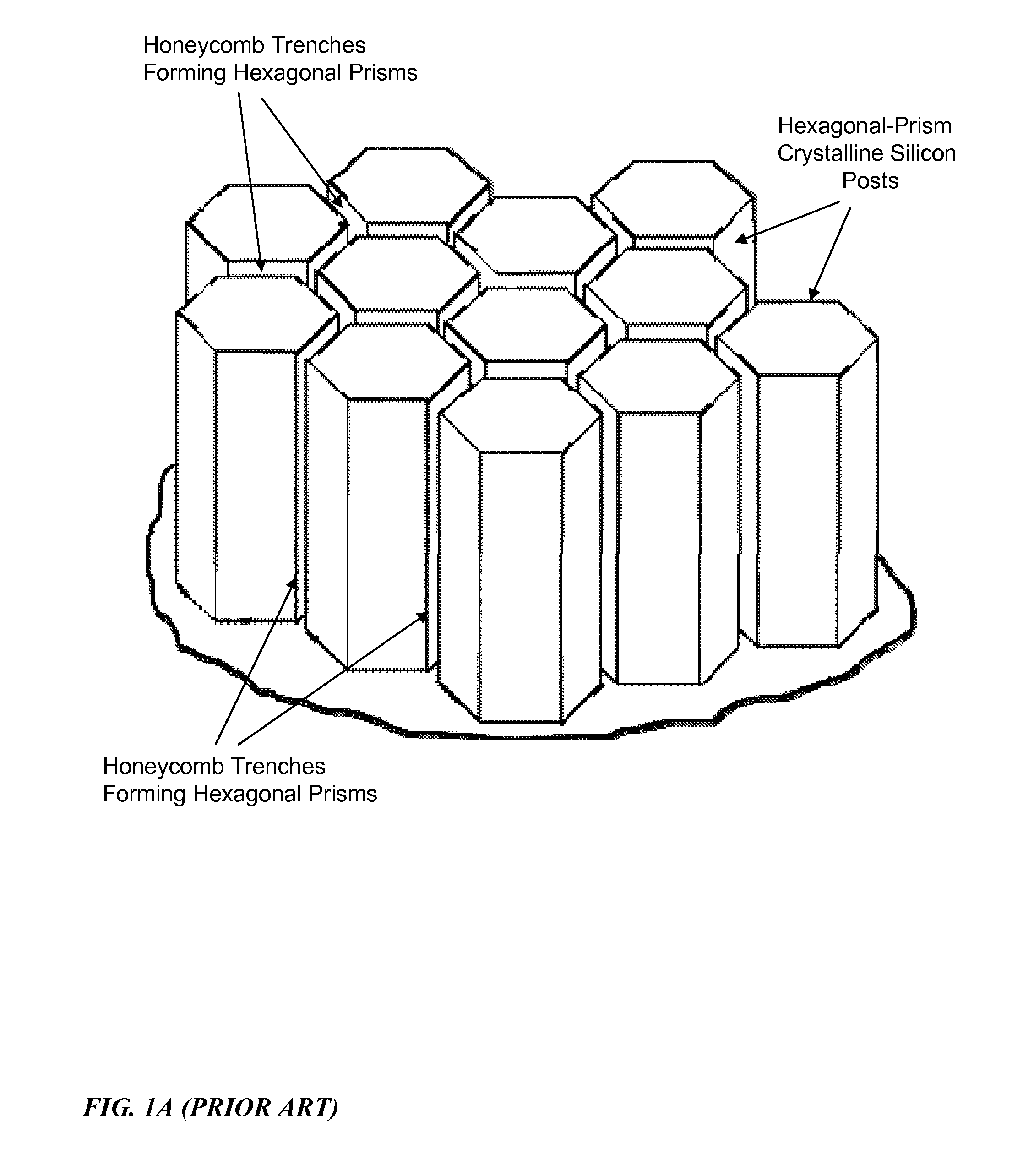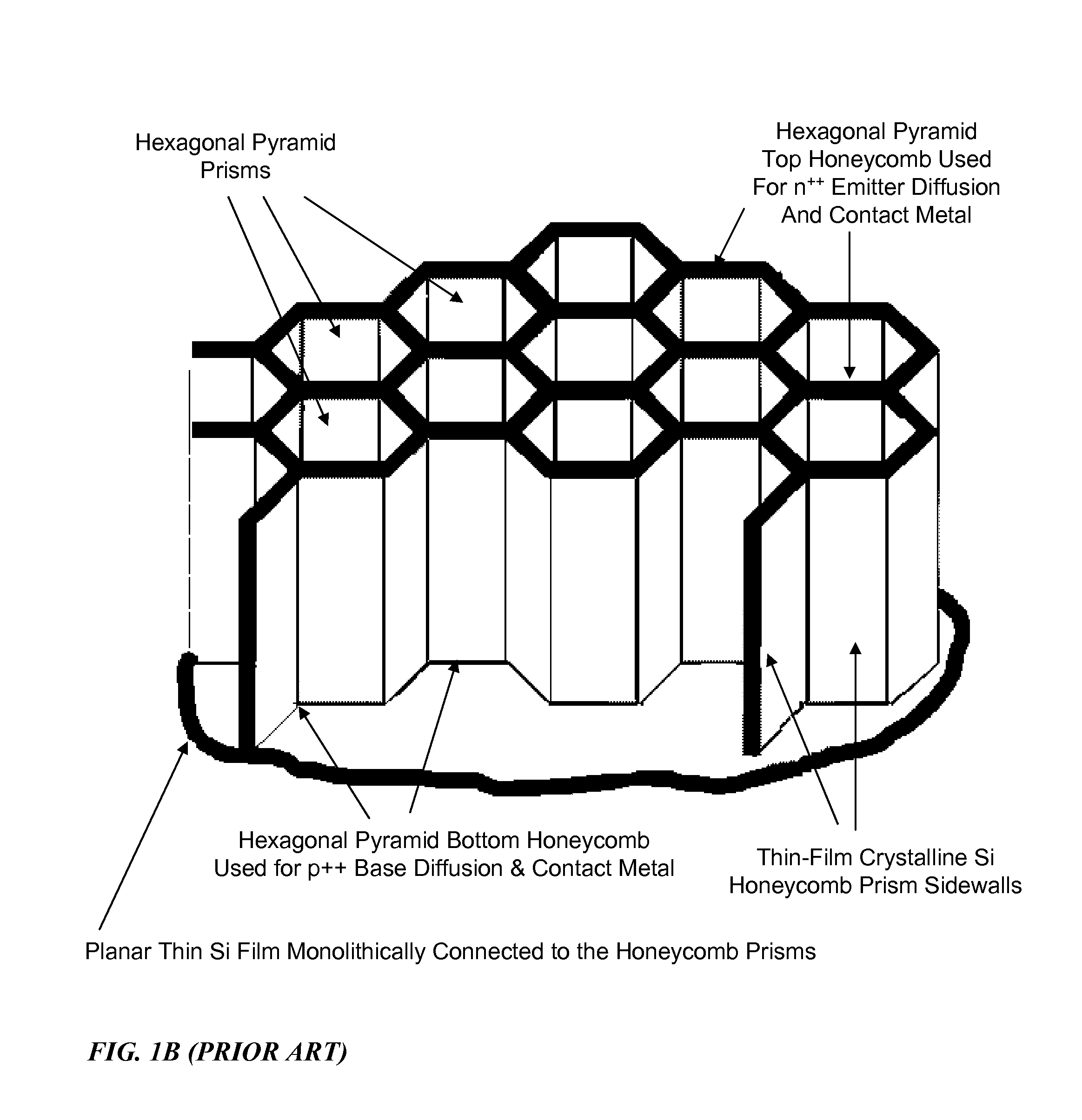Three-Dimensional Semiconductor Template for Making High Efficiency Thin-Film Solar Cells
a solar cell and template technology, applied in the field of photovoltaics and solar cells, can solve the problems of reducing cell quantum efficiency, and flat thin-film crystalline silicon substrates having poor mechanical strength for cell and module processing needs, so as to eliminate or reduce disadvantages and problems, and reduce manufacturing costs
- Summary
- Abstract
- Description
- Claims
- Application Information
AI Technical Summary
Benefits of technology
Problems solved by technology
Method used
Image
Examples
Embodiment Construction
[0031]The following description is not to be taken in a limiting sense, but is made for the purpose of describing the general principles of the present disclosure. The scope of the present disclosure should be determined with reference to the claims. Exemplary embodiments of the present disclosure are illustrated in the drawings, like numbers being used to refer to like and corresponding parts of the various drawings.
[0032]FIG. 1A illustrates a partial view of a re-usable mono-crystalline silicon template with hexagonal-prism posts disclosed in U.S. Pat. Pub. No. 2008 / 0264477A1. The hexagonal pillars are etched by deep-reactive ion etching (DRIE) with photolithographically patterned photoresist as the hard masking layer. The DRIE etching provides well defined high-aspect ratio gaps between the pillars, however the narrow gaps are difficult to fill by the epitaxial silicon growth and it is difficult to release the epitaxial layer from such a template.
[0033]FIG. 1B illustrates a parti...
PUM
 Login to View More
Login to View More Abstract
Description
Claims
Application Information
 Login to View More
Login to View More - R&D
- Intellectual Property
- Life Sciences
- Materials
- Tech Scout
- Unparalleled Data Quality
- Higher Quality Content
- 60% Fewer Hallucinations
Browse by: Latest US Patents, China's latest patents, Technical Efficacy Thesaurus, Application Domain, Technology Topic, Popular Technical Reports.
© 2025 PatSnap. All rights reserved.Legal|Privacy policy|Modern Slavery Act Transparency Statement|Sitemap|About US| Contact US: help@patsnap.com



